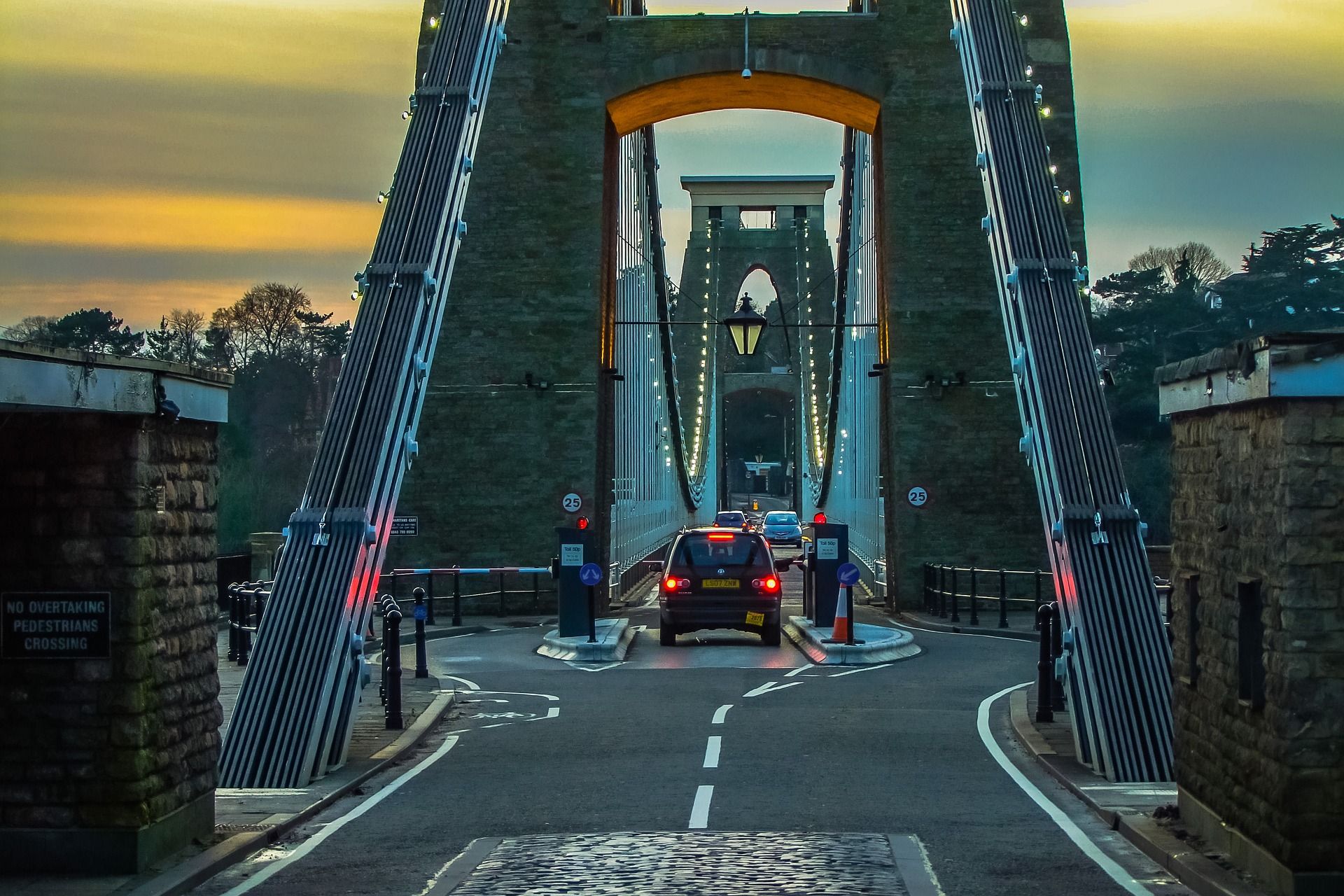By Rosie Neville, Final Year Economic and Politics
Bristol’s Clean Air Zone (CAZ) launched on Monday the 28th of November. In an effort to get levels of nitrogen dioxide below the legal limit, it will introduce daily charges for older, more polluting vehicles driven in the city centre and harbourside area. There are some specific exemptions available until March 2023, for example for residents, low-income workers and Blue Badge holders.
CAZ charges have been set from £9 for smaller vehicles and up to £100 for larger vehicles. Over 71 per cent of vehicles travelling into Bristol already meet the zone's emission standards as only older and more polluting vehicles will be charged. You can check whether your vehicle will be charged via the national online checker. The Clean Air Zone spans from the Clifton Suspension Bridge to Temple Quay and it stops shy of the University of Bristol Clifton Campus. You can view an interactive map of Bristol's Clean Air Zone on the Bristol City Council website.
Air pollution is associated with a number of adverse health impacts. It is recognised as a contributing factor in the onset of heart disease and cancer. The most pressing challenge in relation to improving air quality is tackling the problem of nitrogen dioxide (NO2) concentrations around roads.
From 28 November, charges will apply to some vehicles in the #CleanAirZone.
— Bristol City Council (@BristolCouncil) November 1, 2022
How to pay
🚘pay within 6 days of entering the zone
🕛you only need to pay the charge once a day
💻pay online https://t.co/zbkhtft2yA
☎️or by phone 0300 029 8888
More info: https://t.co/UArtPyjOyB pic.twitter.com/J10ReWPBM1
In 2017, monitoring in Bristol showed that the city is currently in breach of the annual objective limit for NO2, set at 40µg/m3. This led to Bristol City Council, along with 24 other local authorities, being ordered to improve air quality by the central government in ‘The shortest possible time’.
A 2017 report into the health effects of air pollution in Bristol concluded that around 300 premature deaths each year in the City of Bristol can be attributed to exposure to nitrogen dioxide and fine particulate matter. This represents about 8.5 per cent of deaths in the administrative area of Bristol being attributable to air pollution. In some poorer central wards, like Lawrence Hill, this figure is nearly 11 per cent.
'The CAZ aims to get NO2 pollution down to legal levels, which is not the same as safe levels.’
In 2019, the Bristol City Council proposed a Diesel Ban to tackle air pollution, but this was ultimately rejected by the central government. The 2020 announcement that Bristol would implement a Clean Air Zone came as a result of collaboration between the Council and the government’s Joint Air Quality Unit.
The University of Bristol Transport Team says it ‘Supports Bristol's CAZ as a means of improving local air quality for the benefit of our whole community'.
Early results from the implementation of a CAZ In Birmingham are positive. The first report published earlier this year by Birmingham City Council found that there has been a reduction in the levels of NO2 within the Zone by an average of 13 per cent, when comparing 2019 (pre-Covid) to 2021 results.
The Mayor of Bristol, Marvin Rees, said: ‘We are committed to reducing air pollution in Bristol and continue to offer people support to consider alternative, more sustainable ways of travelling in our city. We want Bristol to be a healthier place for everyone to grow up, live and work, but recognise that this comes with challenges'.

‘We’ve been able to secure the financial support of £42m from the government for people and businesses to use, but now Bristolians need to make sure they’re getting ready. I want to remind people that there are several types of support which are open for applications before the Clean Air Zone launches'.
You can find out more about financial support on the Bristol City Council website, as well as accessing free active travel support including free cycling railing, eScotter credit and bus taster tickets.
Whilst the view that local air quality in Bristol needs to be improved is widely accepted, the CAZ scheme has received a mixed response. Groups such as the Bristol Clean Air Alliance and the Bristol Green Party believe the scheme should have been implemented much sooner, whilst some residents and businesses are worried it will have negative consequences.
Speaking about the impact on businesses and customers, Carla Denyer, co-leader of the Green Party and Bristol city councillor, noted it's too early to draw any conclusions. However, Carla pointed out that ‘Given that 70 per cent of vehicles in Bristol currently meet the standards, it is unlikely that the effects will be too widespread as most businesses will be up to date and most customers will be unaffected'.
It's crucial we tackle #AirPollution in #Bristol; it causes 300 deaths a year and affects children's brain development.
— Carla Denyer (@carla_denyer) November 29, 2022
So I'm relieved the #CleanAirZone is finally here, 6 yrs after @bristolgreen called for it.
But would've been better if support packages were available sooner. pic.twitter.com/8jBpZIr68L
Carla also emphasized that ‘it [CAZ] may just be ambitious enough to meet legal requirements, but the legal minimum still means negative impacts on people’s health'. Expanding on her point, she explained that: ‘There is no safe level of NO2. The CAZ aims to get NO2 pollution down to legal levels, which is not the same as safe levels'.
When Epigram contacted Zara Shilakis, Chair of the Bristol Sustainability Network, she spoke in support of the concept of the clean air zone, but conceded she believed it is not ‘ambitious enough'. Zara said: ‘I support the concept of the Clean Air Zone but I think more needs to be done and more support needs to be provided by the Bristol City Council. I also don't think Bristol's CAZ is ambitious enough but given the lack of other supplementary actions, I understand that starting small is a good first step.
'In terms of "support" and "supplementary action", I refer to the inefficiency and unreliability of the Bristol public transportation system (buses). While having a CAZ is necessary, it is also necessary to have a reliable, affordable and accessible public transportation system to support the transition away from a motor-based society. By not providing a reliable bus system, the Bristol City Council is giving individuals no other option. Many people don't live close to a bus stop or train station. Most people also may not have the resources to afford a new car. Bristol City Council should have collaborated with local bus companies to improve reliability, accessibility and affordability before rolling out the CAZ'.
The 2021 Bristol Equality Impact Assessment on the CAZ recognised that its impacts have been 'disproportionately' felt by Disabled people. These concerns were echoed by disability campaigners who came together outside City Hall on the 18th of October to highlight how disabled communities will be impacted disproportionately under the current plans for Bristol’s Clean Air Zone.
A caged protester is among people outside City Hall protesting what they call Bristol’s “dirty air crisis” pic.twitter.com/Yhq9gAfx08
— Betty Woolerton (@bettywoolerton) October 18, 2022
Emma Geen, a spokesperson for the Bristol Disability Equality Forum (BDEF) said: ‘Bristol is experiencing a dirty air crisis, which kills hundreds of disabled people a year, so we welcome action to clean our air. But the price of clean air cannot be at the detriment of disabled people.
‘Over a third of adults in poverty are disabled people and, alongside the burden of austerity, the pandemic, and now the cost-of-living crisis, the scheme could drive many more into serious poverty or trap them in their homes'.
Carla highlighted that she believed that the ‘Bristol City Council is not doing enough to ensure that the Clean Air Zone is inclusive'.
A large group of @bristolgreen councillors stepped out of a meeting at City Hall briefly this afternoon to meet with @BDEFbites members.
— Carla Denyer (@carla_denyer) October 18, 2022
Cllr @tim_wye and I updated them on the Mayor's response to their requests (https://t.co/s53ZAPF9E0) for a more inclusive #CleanAirZone https://t.co/RjgnWpUvwV pic.twitter.com/LxQg4xIYOJ
‘Green councillors have supported BDEF’s asks by raising them with the Mayor in a council meeting last month, and joining their demo outside City Hall in solidarity.’
University of Bristol climate specialists attend COP27
'Clean Air for Life - Not Just for Lockdown’: XR rebels occupy the roof of Bristol City Hall
Zara Shilakis, who is the chair of the Sustainability Network at the University of Bristol, noted that ‘The Bristol City Council has a number of financial support programs to help individuals who may financially struggle due to the fines imposed by the CAZ. I would use this resource as necessary and not as a scapegoat to curb cutting emissions. For example, take the financial support for now but in the meantime, search for alternative methods such as government funding for cleaner vehicles if a car is necessary for your work or try cycling if that's feasible. Cycling into an area that has better bus connections is less troublesome than lugging your bike around.
'I'd also reach out to local councillors and local MPs and urge them to improve local public transportation for a long-term solution. The Sustainability Network is also working on a campaign to reduce bus fares for students and staff as well as increasing the reliability and connectivity of buses in Bristol. We'd love to hear your thoughts'.
Featured Image: Pixabay / David Mark
Do you believe the Clean Air Zone is ambitious enough?






